
Adaptogens are nature’s way of helping the body adapt to physical, emotional, and environmental stress. These powerful plants and herbs have been used for centuries in traditional medicine and now modern science is catching up.
In today’s fast-paced world, stress has become a near-constant presence. Whether from work, relationships, or daily responsibilities, chronic stress can take a serious toll on your health affecting your sleep, immunity, mood, and energy. As a result, more people are turning to a class of herbal remedies known as adaptogens for stress.
In this article, we’ll explore what adaptogens are, how they work, which are the most effective for stress, and how to use them highlighting one of the most researched: ashwagandha.
What Are Adaptogens?
Adaptogens are natural substances, primarily herbs and roots, that help your body maintain balance or homeostasis under stress. Unlike pharmaceutical stimulants or sedatives, adaptogens don’t force a biological reaction. Instead, they modulate the stress response, making them safe for long-term use.
Adaptogens help normalize the functions of the hypothalamic-pituitary-adrenal (HPA) axis, which controls your stress hormones, including cortisol and adrenaline.
How Adaptogens Combat Stress
Adaptogens support the body in three key ways:
- Regulate Cortisol – Chronic stress elevates cortisol, leading to fatigue, anxiety, and disrupted sleep. Adaptogens help bring cortisol levels back to normal.
- Enhance Energy Resilience – Instead of overstimulating, adaptogens improve stamina and reduce feelings of burnout.
- Balance the Nervous System – They support parasympathetic activity, calming the “fight-or-flight” response.
This makes adaptogens ideal for anyone dealing with ongoing mental or physical stress.
Best Adaptogens for Stress Relief
Let’s explore the top adaptogens recognized for their stress-relieving properties—starting with the most widely studied: ashwagandha.
1. Ashwagandha (Withania somnifera)
Ashwagandha is one of the most powerful adaptogens for stress and anxiety. Traditionally used in Ayurvedic medicine, it’s now supported by numerous clinical studies for its ability to reduce cortisol, promote calmness, and enhance overall resilience.
- A 2019 study published in Medicine (Baltimore) found that adults who took ashwagandha for 60 days had significantly lower stress levels and cortisol compared to placebo source.
- Another trial in Cureus showed that ashwagandha improved sleep and reduced anxiety scores in stressed adults source.
We recommend DeluxeSupps Ashwagandha Herbal Supplement, which offers a high-potency extract designed to support daily stress resilience without side effects.
2. Rhodiola Rosea
Often referred to as the “golden root,” Rhodiola is well-known for reducing mental fatigue, improving mood, and enhancing mental clarity during stressful situations.
- It’s especially useful for people experiencing burnout, overwork, or brain fog.
- It has been shown to reduce levels of cortisol and improve symptoms of mild-to-moderate depression source.
3. Holy Basil (Tulsi)
Holy basil is another Ayurvedic herb known for its calming and mood-boosting effects. It supports the adrenal system and helps regulate blood sugar and cortisol.
- Clinical research has shown reductions in anxiety and stress-related symptoms in patients taking holy basil extracts source.
4. Eleuthero (Siberian Ginseng)
Popular in Traditional Chinese Medicine and Russian herbalism, Eleuthero is used to combat physical fatigue and increase resilience to mental stress.
- It's often taken by athletes or those with demanding physical jobs to prevent burnout.
5. Schisandra Chinensis
This berry-based adaptogen supports both physical stamina and mental clarity. It also has liver-protective and antioxidant effects.
- Studies suggest it may reduce anxiety and fatigue, especially during periods of emotional strain source.
Ashwagandha: The Gold Standard Adaptogen for Stress
Among all adaptogens, ashwagandha stands out as one of the best-researched and most effective for managing stress without causing sedation or dependence.
Benefits Include:
- Lower cortisol levels
- Improved sleep quality
- Reduced anxiety and irritability
- Enhanced mood and cognitive function
- Increased resistance to stress-induced fatigue
Ashwagandha’s unique ability to address both physical tension and mental worry makes it a foundational adaptogen for anyone seeking balance.
Signs You May Need Adaptogens
You might benefit from using adaptogens if you experience:
- Constant fatigue despite enough sleep
- Trouble falling or staying asleep
- Frequent headaches or tight muscles
- Mood swings or irritability
- Trouble focusing or brain fog
- Cravings for sugar, caffeine, or alcohol
- Weakened immune response
Adaptogens help correct these imbalances from the inside out—without harsh side effects.
How to Take Them
Adaptogens are best taken daily for cumulative benefits. They can be found in:
- Capsules/Tablets – Convenient for consistent daily use
- Powders – Easy to mix into smoothies or teas
- Tinctures – Quick absorption and customizable dosing
Recommended Use:
- Ashwagandha: 300–600 mg of root extract daily
- Best Time: Morning or evening, depending on your needs (evening is ideal for stress/sleep)
Our top recommendation is DeluxeSupps Ashwagandha Herbal Supplement, which is formulated with pure root extract for optimal bioavailability and stress reduction.
Are Adaptogens Safe?
Yes. Adaptogens are generally non-toxic, well-tolerated, and safe for long-term use. That said, it’s important to:
- Choose standardized, high-quality extracts
- Start with the recommended dose
- Talk to a healthcare provider if you’re pregnant, nursing, or taking medication (especially thyroid or blood pressure drugs)
Ashwagandha, for instance, is considered safe when taken as directed, but should be avoided during pregnancy unless advised by a medical professional.
Combining Adaptogens
Adaptogens often work better when combined strategically. Here are some effective pairings:
| Combination | Benefit |
| Ashwagandha + Rhodiola | Stress relief + enhanced energy |
| Ashwagandha + Holy Basil | Calming + immune support |
| Ashwagandha + Magnesium Glycinate | Muscle relaxation + anxiety support |
| Ashwagandha + L-theanine | Calm focus + mood regulation |
These blends help target multiple stress pathways while supporting the body as a whole.
Frequently Asked Questions (FAQs)
How long does it take for adaptogens to work?
Most people begin to notice improvements within 1 to 2 weeks, but full benefits often appear after 4 to 8 weeks of consistent use.
Can I take adaptogens every day?
Yes, daily use is recommended for long-term balance and resilience. They are not habit-forming or sedating.
Are adaptogens better than pharmaceutical stress medications?
Adaptogens are not a replacement for prescribed medications, but they offer a safer, more sustainable option for everyday stress support—without the risk of dependency.
Can I take adaptogens with caffeine?
Yes, but if you're relying heavily on caffeine for energy, adaptogens may help reduce that dependence over time by supporting natural energy production.
Final Thoughts: Nature’s Answer to Modern Stress
Stress may be inevitable, but burnout and exhaustion don’t have to be. With consistent use of adaptogens for stress, you can build a more resilient mind and body—naturally and safely.
Among the best adaptogens, ashwagandha is backed by centuries of traditional use and a growing body of scientific research. Whether you’re battling anxiety, chronic fatigue, or just want to feel more in control of your day, adaptogens can offer reliable, drug-free support.
Take the First Step Toward Balance
Support your mental clarity and resilience with DeluxeSupps Ashwagandha Herbal Supplement—your daily adaptogen for a calmer, more focused life.
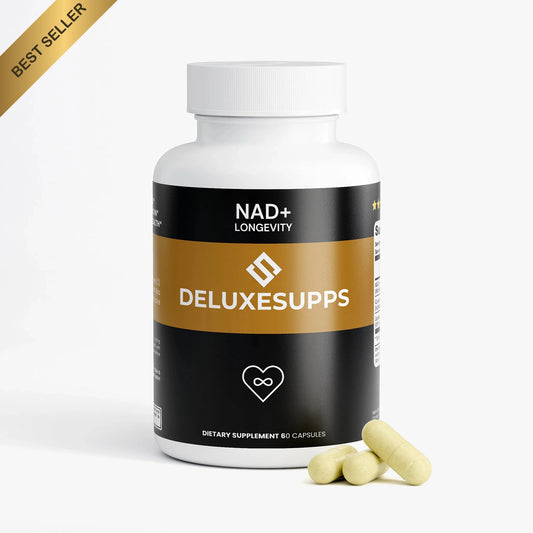
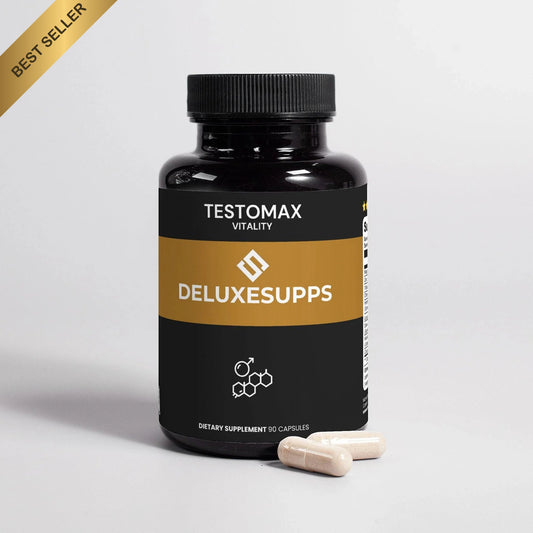
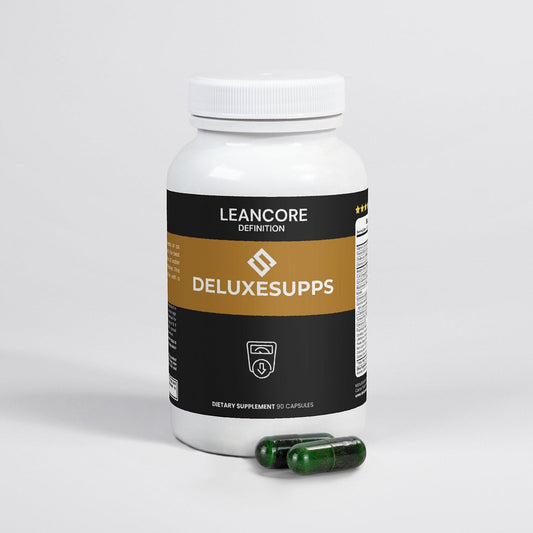
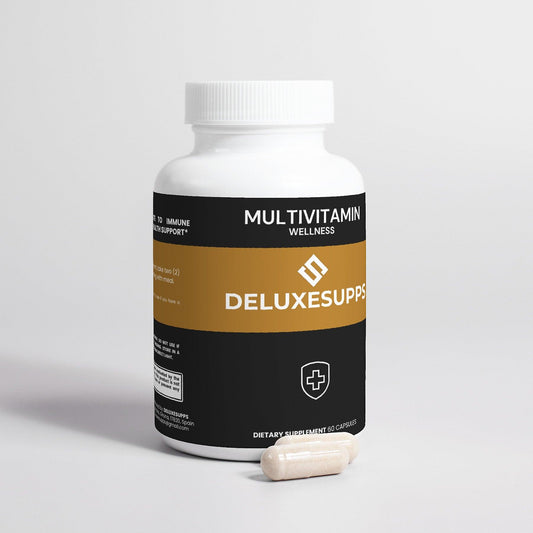
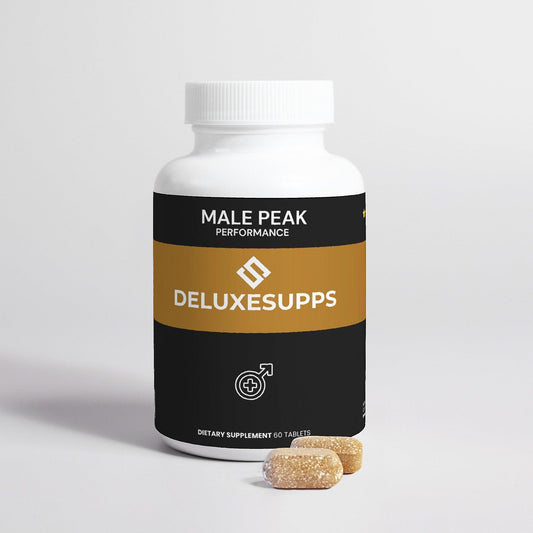

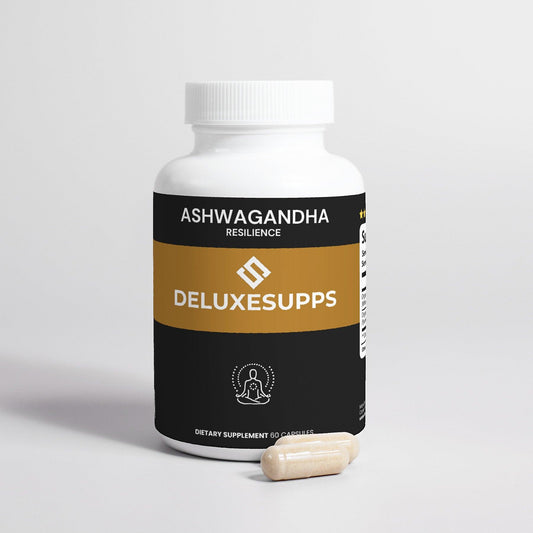






1 comment
This combo of Ashwagandha and Magnesium Glycinate sounds interesting – I take this Magnesium Glycinate www.amazon.com/Magnesium-Glycinate-500-Absorption-Supplements/dp/B0BXYDMKVG, it helps me with my legs cramps, and I also feel more relaxed. It is an interesting idea to combine it with Ashwagandha.